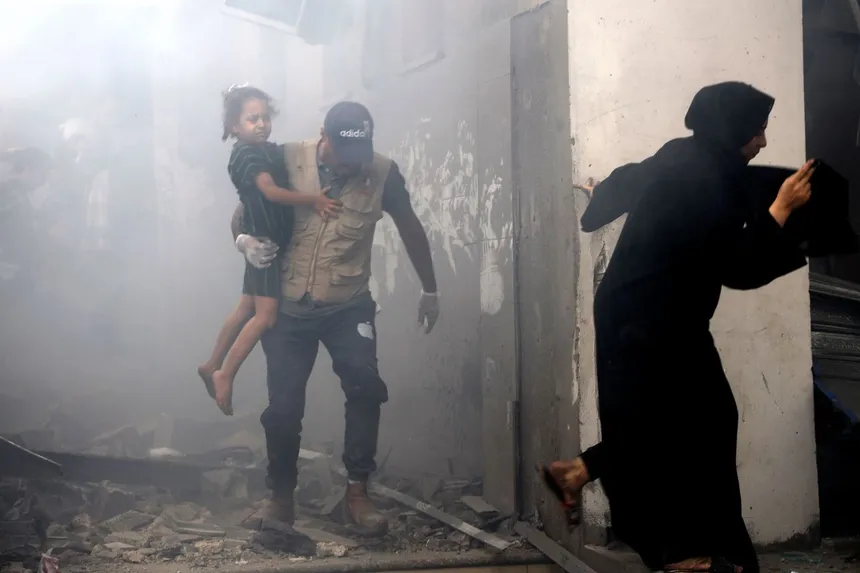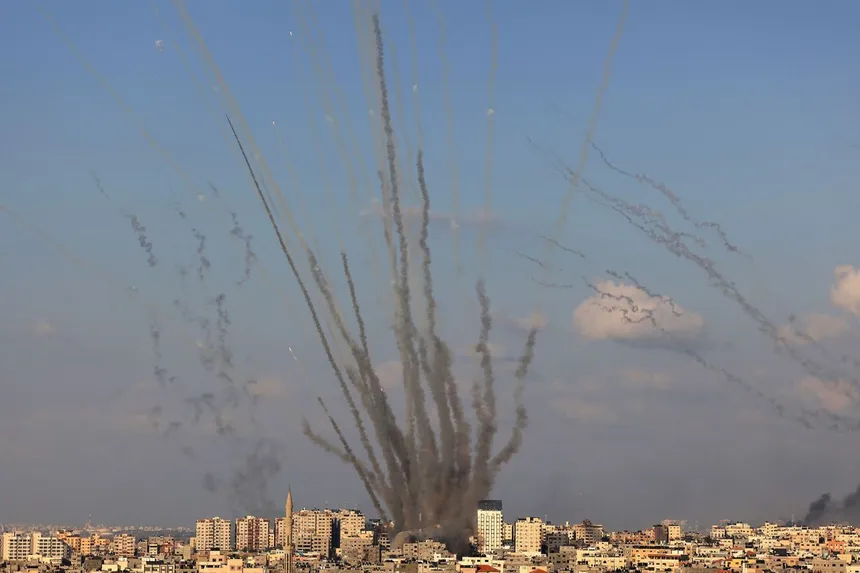The weekend attack by Hamas militants on Israeli soil has sent shockwaves throughout the region, killing hundreds and taking others hostage. This unprecedented breach of the Israeli border has raised questions about the group’s capabilities and strategy. Hamas has been responsible for numerous suicide bombings and other deadly attacks on civilians and Israeli soldiers, earning it the designation as a terrorist organization by the US State Department and the European Union.
Hamas’ motivations behind the attack are unclear, but the group has stated that it was provoked by Israel’s continued occupation and blockade of the Gaza Strip, as well as its crackdown on militants in the West Bank. The group has a long history of violence and extremism, intending to annihilate Israel and establish an Islamic state in its place. Despite its extremist views, Hamas has gained significant popularity among Palestinians, who see it as a resistance movement against Israeli occupation and oppression.
Hamas has been responsible for numerous attacks on Israeli soil, citing the group’s historic grievances and ongoing occupation of Palestinian territories. The group has called for the annihilation of Israel and has carried out numerous attacks, including suicide bombings and rocket fire into Israel. However, the group’s recent assault has raised concerns about its intentions and capabilities, with Israel accusing Hamas of having an arsenal of rockets and unmanned drones.
The attack has sent shockwaves throughout the region, with the European Union and other Western countries condemning the violence and calling for restraint. The US has also condemned the attack, while Saudi Arabia, a key player in the region, has remained silent. The situation remains volatile, with tensions between Israel and Hamas remaining high and the possibility of further escalation increasing by the day.

Hamas Targets Israel in Shocking Border Breach
Experts have warned that the attack could be a turning point in the conflict, leading to further violence and instability in the region. The attack has also raised concerns about the potential for escalation, with Israel promising a strong response to the breach. The situation is volatile, and the possibility of further violence remains high, as the international community continues to call for restraint and a resolution to the conflict.
Despite the violence, many Palestinians see Hamas as a resistance movement against Israeli occupation and oppression. The group won the 2006 parliamentary elections and violently seized control of the Gaza Strip from the Palestinian Authority in 2007. Israel responded to the takeover with a blockade on Gaza, restricting the movement of people and goods in and out of the territory and ravaging its economy.
The group’s leaders have vowed to continue their fight against Israel, citing the group’s historic grievances and ongoing occupation of Palestinian territories. Many of Hamas’ leaders have relocated to Beirut, further solidifying their ties to the Iranian regime. The group has received backing from Arab countries such as Qatar and Turkey, as well as Iran and its allies.
The recent attack by Hamas on Israeli soil has sent shockwaves throughout the region, raising concerns about the group’s intentions and capabilities. The situation remains volatile, with tensions between Israel and Hamas remaining high and the possibility of further escalation increasing by the day. The international community must act swiftly to resolve the conflict and bring an end to the violence.

